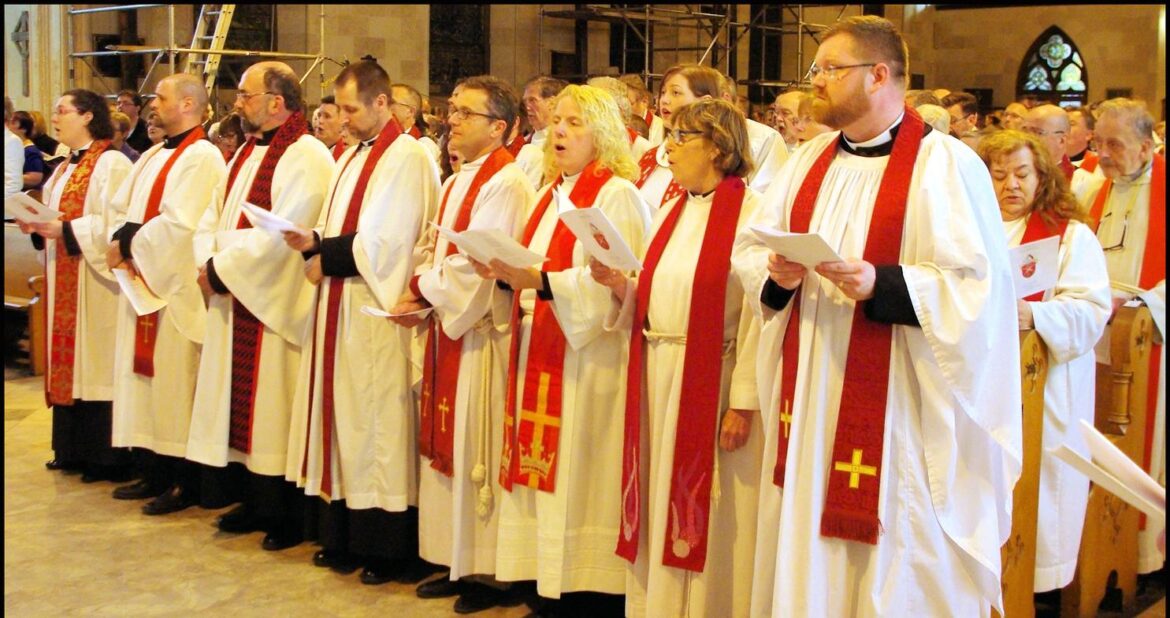In a world filled with diverse beliefs and values, one constant remains – the influence of teachers in shaping our understanding of faith and spirituality. As we navigate the complexities of our own beliefs, we often turn to the guidance of clergy members who have dedicated their lives to sharing their wisdom and insights. In this article, we explore the valuable lessons we can learn from asking the clergy about their experiences in teaching faith, and how we can honor the invaluable contributions they make to our spiritual journeys. Join us on a journey of discovery as we delve into the intersection of education and faith, and the profound impact it has on our lives.
Understanding the Role of Clergy in Education
In the realm of education, the role of clergy is often overlooked but holds immense importance in shaping the values and beliefs of students. By incorporating faith-based teachings into the curriculum, clergy members help students develop a strong moral compass and ethical foundation. These lessons go beyond traditional subjects like math and science, providing students with a well-rounded education that includes spiritual and emotional growth.
Through their unique perspective and guidance, clergy members can offer valuable insights to teachers on how to effectively incorporate faith lessons into their lesson plans. By collaborating with clergy, teachers can create a supportive environment that fosters not only academic growth but also spiritual development. This partnership between clergy and educators can lead to a more holistic approach to education, where students are not only academically successful but also emotionally and spiritually fulfilled.

Incorporating Faith Lessons in Teaching
One of the most powerful ways to incorporate faith lessons in teaching is by seeking guidance and wisdom from clergy members. These spiritual leaders can provide valuable insights and perspectives that can enrich the educational experience for both teachers and students. By inviting clergy to share their wisdom and teachings in the classroom, teachers can create a learning environment that nurtures both the mind and the soul.
When teachers honor and respect the faith lessons shared by clergy, they are not only enriching their own teaching practice but also demonstrating a deep level of respect for the spiritual beliefs of their students. By incorporating these faith lessons into their curriculum, teachers can help students develop a greater understanding and appreciation for diverse religious traditions. This can foster a sense of tolerance, empathy, and respect for others, creating a more inclusive and harmonious learning environment.

Building Trust between Students and Clergy
is essential for creating a supportive and nurturing learning environment. One way to achieve this is by honoring the faith lessons taught by teachers. By showing respect for their beliefs and teachings, students can develop a deeper connection with their clergy and feel more comfortable seeking guidance and support.
Through open communication and mutual respect, students and clergy can build a strong foundation of trust and understanding. This can lead to meaningful discussions, shared experiences, and a sense of community within the school. By recognizing the importance of faith lessons in the lives of students, clergy can foster a positive and inclusive environment where everyone feels valued and supported.

Practical Strategies for Collaborating with Clergy in Schools
Collaborating with clergy in schools can be a valuable way to honor the faith lessons teachers impart to their students. By working together with clergy members, educators can enhance the spiritual and moral guidance provided to students, fostering a more holistic approach to education.
Here are some :
- Establish open communication: Maintain regular communication with clergy members to discuss ways to support teachers and students in their spiritual journey.
- Invite clergy to school events: Encourage clergy members to participate in school events and ceremonies to provide additional spiritual guidance and support to students.
- Organize joint workshops: Collaborate with clergy to organize workshops for teachers on incorporating faith-based lessons into their curriculum.
The Conclusion
As we reflect on the wisdom shared by the clergy in honoring teachers’ faith lessons, let us remember the profound impact that educators have on shaping the minds and spirits of the next generation. By recognizing and valuing the diverse beliefs and teachings that our teachers bring to the classroom, we can create a more inclusive and enriching educational environment for all. Let us continue to seek out the guidance of our clergy and educators, as we journey towards a deeper understanding of faith and knowledge. Stay curious, stay open-minded, and always remember to honor the lessons that shape our hearts and minds. Thank you for joining us on this enlightening exploration.


